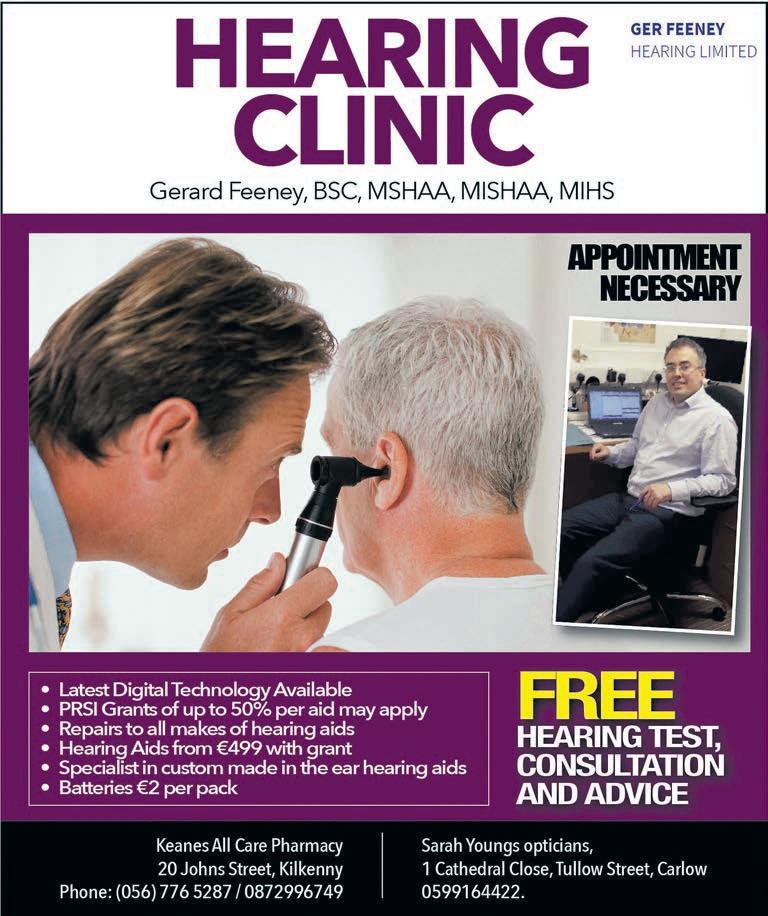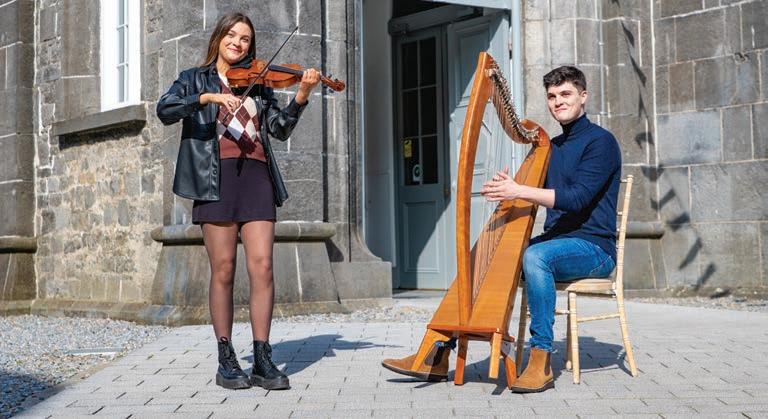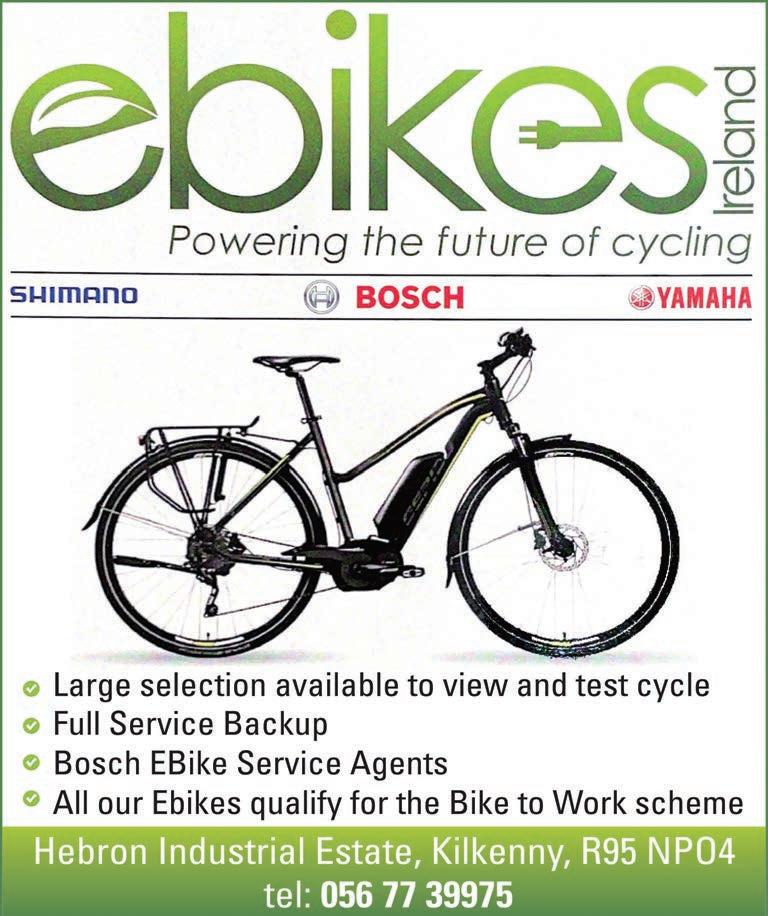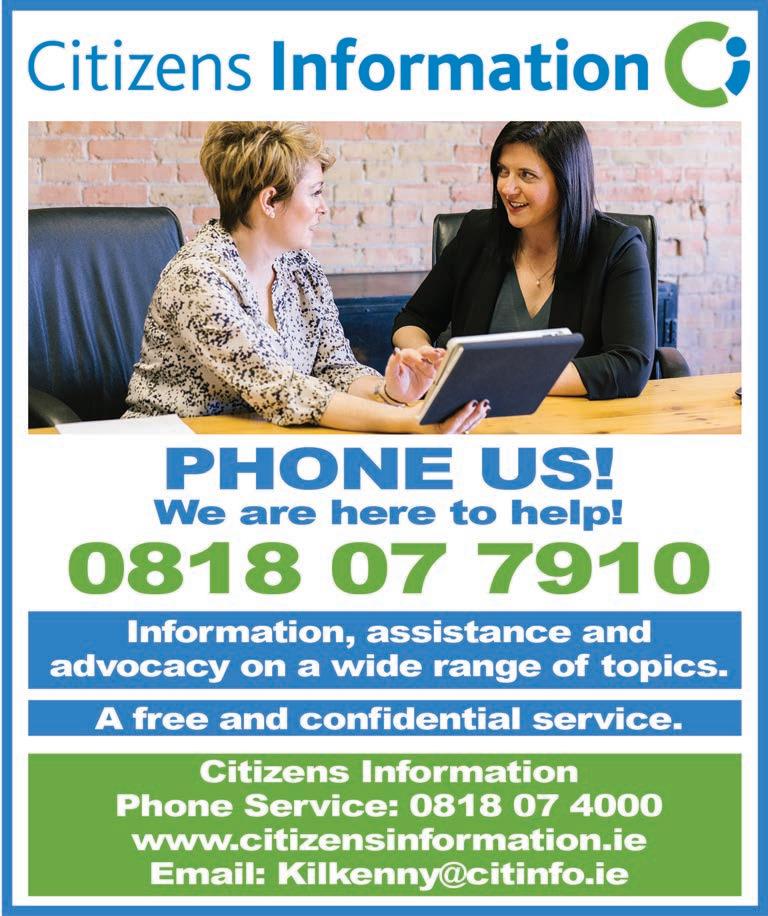
7 minute read
John Ellis
BY JOHN ELLIS FINANCIAL ADVISOR

Advertisement
GROWING up in Ireland getting a car was a rite of passage. You got a credit union/bank loan and applied for your provisional and away you went, your own means of freedom. It was the sign you had arrived. And today Ireland continues to rely on the car as the main means of transportation, but experts say the trend may soon be away from car ownership with peoples’ appetite for transport alternatives increasing. e Society of the Irish Motor Industry (SIMI) recent report shows new car registrations for the month of January are down slightly -0.2% (25,093) when compared to January 2021 (25,140).
While used car imports saw a 40.8% (4,041) decrease in January, when compared with January 2021 (6,821), new electric car registrations reached their highest month on record with 2,714 registered in January 2022 (+178%), compared to 977 January 2021.
Even though electric cars accounted for 11% of the new car market, an increase of 178% on last year, car sales are 22% behind pre-pandemic levels (2019).
In a recent nationwide survey conducted by Bolt, the European mobility company app, apart from the decrease due to the pandemic the reasons why car owners might choose not to buy a new vehicle or even give up their existing cars are the overall running expenses, rising fuel costs and environmental reasons, with some citing improvement in public transport (24%) and the lack of car parking spaces (13%). e survey shows more than one-third of drivers (38%) are aiming to reduce the number of car trips they take each week with respondents mainly looking at cutting out driving for recreational trips (43.7%) and one-third (33.5%) looking to stop commuting by private car. A further 27.9% hope to reduce using the car for grocery shopping. Even so, one in 10 (11.6%) Irish car owners feel they can’t give up their vehicle despite the options available.
Bolt, which launched in Dublin in 2020, has an alternative for its already thousands of drivers on its platform. ey aim to “build cities for people, not cars”. ey o er a “use as you need”, operation with a range of mobility services including shared cars, e-bikes, scooter hire, and food and grocery delivery. ese services are already provided to more than 100 million customers in 45 countries across Europe and Africa and they are looking to further roll out the operation in Ireland.
Commenting on the ndings, Aisling Dunne, Head of Public Policy for Bolt Ireland, said: “Bolt’s mission is to reduce the need for private car ownership through o ering multiple transport modes in the same app. We believe Ireland has the highest potential for doing this, as there is intrinsic high car usage, but many journeys are short. e research supports a clear willingness to look at alternative means of transport.
“ erefore, Bolt is to start a major drive to track sentiment as they wish to support drivers taking the initiative to give up the private car with long term choices.”
But what are the options and are they viable? According to those surveyed. to decrease their car usage they would look towards the bus and train with 37% and 12% respectively considering the move to each form of public transport.
A total of 15% of respondents would give up the car and use a bike and 8% would consider electric scooters. Nearly 10% of the respondents would opt for a taxi while 11% would be open to the idea of car rental. is shows that a range of transport o erings will be needed to get a wide-scale shift in behaviour, but over 70% (72.7%) would estimate they would need to hire a car at least once per week if they were to give up the use of their private vehicle. But, most importantly, availability, price and the exibility of the service will be key factors if the process is to work.
Bolt believe Ireland has the required characteristics to reach world-leading levels of shared car ownership. ey are seeing signi cant shifts in how people use these services in areas where they have rolled out the model and believe there is evidence that this additional exibility is being sought by Dublin drivers and those in other major cities in Ireland.
Baby, you can drive my car...

John@ellis nancial.ie 086 8362633

Kilkenny debut for Caoimhe and Séamus Uí Flatharta
CAOIMHE and Séamus Uí Flatharta’s recent performance of the lament Anach Cuan on the Late Late Show in honour of Aishling Murphy captured the mood of the nation. e siblings hail from the Gaeltacht region of Connemara in County Galway and make their Kilkenny debut on Sunday, 10th April at the stunning Medieval Mile Museum. e talented pair are multi- All Ireland winning performers who keep their language and heritage at the heart of all their musical endeavours.
Born into a musical family in the village of An Áird Mhóir, they were exposed to traditional Irish music at a very young age and have since developed into accomplished singers, multiinstrumentalists and dancers. e Ó Flatharta duo are noted for their unique arrangements of both Irish and English language songs, taking a particular interest in vocal arrangement and harmonization. Both Caoimhe and Séamus are multi All-Ireland winning performers who keep their language and heritage at the heart of all their musical endeavours.
Tickets priced at €12 including booking fee. Concert starts at 12pm. Full proceeds from tickets go to Irish Red Cross Ukraine and Unicef emergency appeals.
April Sounds is delivered locally by Kilkenny County Council Arts O ce and funded by the Department of Tourism, Culture, Arts, Gaeltacht, Sport & Media.


Chocolate is good for you
ANDREW MCDONALD HYPNOTHERAPIST
EASTER (noun); annual festival when children, and some adults, gorge on sweet things. Also, the part of the Christian year commemorating Jesus of Nazareth’s cruci xion and resurrection. However, for the young, and youthful at heart, it means chocolate.
Yes, limiting sugar is important for health. Yet, at this point in the calendar, perhaps we can a ord to enjoy ourselves just a little? For persuasion’s sake, how about some reasons chocolate is actually good for us?
Cocoa, the base substance of chocolate, contains blood pressure-reducing avanols. Like ACE inhibitors, they stimulate production of nitrous oxide in blood. Research in Australia found regular consumption of cocoa reduces blood pressure both entering and exiting the heart. ose helpful avanols also dilate blood vessels. is may improve blood ow in the liver, thereby helping to prevent liver damage. Following up every bite of chocolate with a whiskey chaser probably still isn’t a good idea, though!
Polyphenols, chemicals found in cocoa, could lead to better cholesterol levels. Chocolate contains stearic acid, a saturated fat. However, unlike most saturates, stearic acid doesn’t raise cholesterol.
By lowering blood pressure, opening up blood vessels and reducing in ammation, chocolate can keep our hearts healthier. A study review demonstrated that of more than 114,000 people, those who ate most chocolate were 37% less likely to su er coronary heart disease. Furthermore, they were 29% less like to have a stroke than those who ate least chocolate.
Chocolate makes you feel good too. Eating it releases endorphins and serotonin, the body’s own pleasure chemicals. In turn, people feel an upswing in their mood after eating cocoa products. ere is debate on whether chocolate increases the desire to exercise. Well, a wish to engage in a certain form of exercise. e Aztecs were the rst people to ascribe aphrodisiac qualities to cocoa.
For those with their minds on higher things, cocoa also boosts brain power. Tests on older people in Norway found those who eat more chocolate, as well as drinking more tea and wine, had signi cantly higher cognitive performances than those who didn’t.
Now a quick quiz question to test cognition: Which country has the most Nobel laureates per capita?
Answer: Switzerland.
Additional interesting fact: e Swiss are the world’s highest consumers of chocolate.
What are we to learn from this? Cocoa turns you into a genius. Maybe.
For those more concerned with their physique, chocolate also makes you slim. is doesn’t equate to eating gargantuan amounts of the stu being a serious weight loss plan. However, research has demonstrated that people who eat chocolate a few times a week are typically thinner than those who don’t. e above all comes with the key caveat of moderation. Consuming enormous quantities of chocolate isn’t an elixir for good health. It does, perhaps, o er a few reasons for losing the guilt whilst we indulge over Easter, though.




